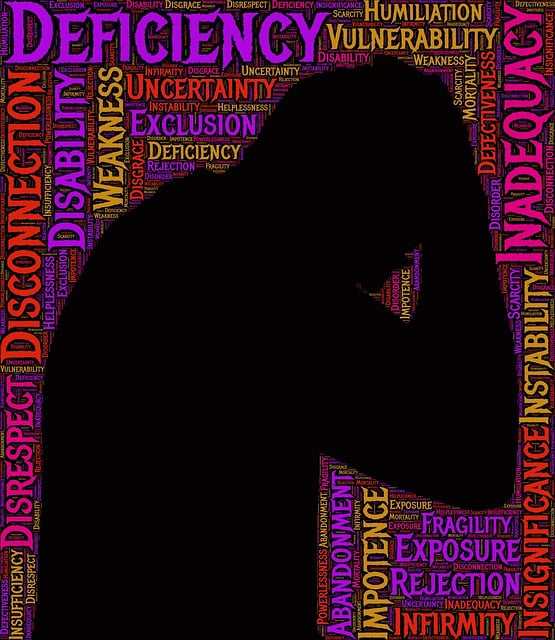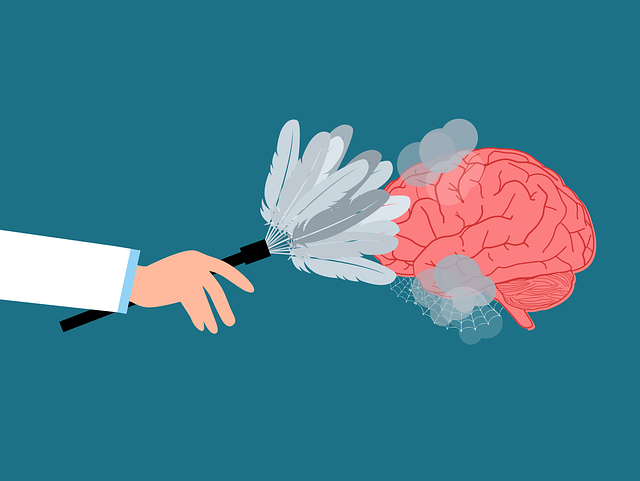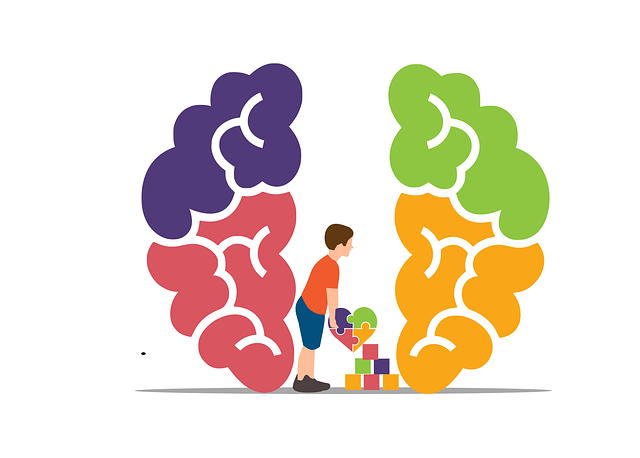In today's diverse healthcare landscape, particularly in communities like Lakewood, cultural competency is crucial for mental health professionals. Programs focusing on this equip providers with tools to overcome communication barriers and build trust with patients from various backgrounds, ensuring effective treatment tailored to individual needs. Effective communication, active listening, and respect for decision-making processes foster an environment where patients feel understood and valued, enhancing care quality at Lakewood Divorce Therapy and other community services. Training in cultural competency has proven successful in improving patient engagement, satisfaction, and stress management among diverse populations.
In today’s diverse healthcare landscape, cultural competency is essential. Lakewood Divorce Therapy highlights the growing need for training that equips providers to deliver empathetic, effective care to all patients. This article delves into key aspects of cultural competency, exploring why it matters, examining the impact of bias and stereotypes, presenting communication strategies for diverse patients, and showcasing successful training programs. By understanding these elements, healthcare professionals can build stronger relationships and improve patient outcomes.
- Understanding Cultural Competency in Healthcare: Why It Matters
- The Impact of Bias and Stereotypes on Patient Care
- Effective Communication Strategies for Diverse Patients
- Building Cultural Trust and Respectful Relationships
- Case Studies: Successful Cultural Competency Training Programs
Understanding Cultural Competency in Healthcare: Why It Matters

In today’s diverse healthcare landscape, cultural competency is an essential aspect that cannot be overlooked. It involves understanding and appreciating the cultural beliefs, values, and practices of individuals from different backgrounds, ensuring equitable and effective care for all patients. This concept is particularly relevant in communities like Lakewood, where a variety of cultural groups coexist, each bringing unique perspectives to healthcare interactions.
For healthcare providers, especially those offering services like Lakewood Divorce Therapy, cultural competency goes beyond mere sensitivity. It empowers professionals to deliver personalized care, bridge communication gaps, and foster trust between patients and the healthcare system. Mental Health Education Programs Design that emphasize cultural competency include crisis intervention guidance tailored to diverse populations, promoting empathy building strategies that create a supportive environment for all individuals seeking therapy, regardless of their cultural background.
The Impact of Bias and Stereotypes on Patient Care

In the realm of healthcare, bias and stereotypes can significantly impact patient care, often leading to misdiagnoses, inadequate treatment plans, and strained doctor-patient relationships. These unconscious biases, rooted in societal norms and personal experiences, can cause healthcare providers to make assumptions about patients based on their race, ethnicity, gender, or cultural backgrounds. For instance, a study by the National Academy of Medicine revealed that racial and ethnic minorities often receive lower quality care compared to their white counterparts, highlighting the pressing need for cultural competency training. At Lakewood Divorce Therapy, we recognize that addressing these biases is not just ethical but essential for delivering effective treatment.
The impact extends beyond individual patient encounters; it reflects on the broader mental health awareness and wellness within communities. Stereotypes can lead to a lack of empathy and understanding, hindering the therapeutic process. Therefore, training programs should focus on promoting self-esteem improvement and mental wellness through education, encouraging providers to question their preconceived notions. By fostering a more inclusive environment and enhancing cultural competency, healthcare professionals can better serve diverse patient populations, ensuring that everyone receives respectful, equitable care—a key aspect of producing high-quality Mental Wellness Podcast Series content that resonates with listeners from all backgrounds.
Effective Communication Strategies for Diverse Patients

Effective communication is a cornerstone of quality healthcare, especially when serving a diverse patient population. Healthcare providers must adapt their strategies to ensure every patient receives clear and understanding care, regardless of their cultural background or language preferences. This involves learning to navigate different communication styles, incorporating non-verbal cues, and using accessible language tailored to the individual’s needs. For instance, Lakewood Divorce Therapy recognizes that patients from diverse communities may have unique perspectives on health and wellness, requiring a nuanced approach.
Cultural sensitivity is crucial in mental healthcare practices, where effective communication can foster trust and improve treatment outcomes. Mental health education programs design strategies that promote cultural competency, ensuring providers understand the impact of social determinants of health. By incorporating stress management techniques and addressing mental health concerns with empathy, healthcare professionals can create a safe space for patients to express their needs and concerns. This holistic approach, combined with cultural sensitivity, can significantly enhance patient experiences, especially in diverse communities where language barriers and unique cultural beliefs may exist.
Building Cultural Trust and Respectful Relationships

Building cultural trust and respectful relationships is a cornerstone of effective healthcare delivery, especially in diverse communities like Lakewood. When healthcare providers cultivate cultural competency, they create an environment where patients feel understood, valued, and heard. This starts with actively listening to patients’ unique perspectives, respecting their decision-making processes, and acknowledging the interplay of social determinants of health that shape their experiences.
At organizations like Stress Management Workshops, which focuses on Mind Over Matter principles, professionals are trained to go beyond basic cultural awareness. They learn to navigate complex issues such as unconscious biases, language barriers, and differing communication styles to foster genuine connections with patients. By embracing these skills, healthcare providers can build trust, improve patient satisfaction, and ultimately enhance the quality of care offered at Lakewood Divorce Therapy and other community-based services.
Case Studies: Successful Cultural Competency Training Programs

Successful Cultural Competency Training programs have shown significant impacts across various healthcare settings. For instance, a study conducted at Lakewood Divorce Therapy revealed that incorporating cultural competency into their therapy sessions led to improved patient engagement and satisfaction levels, particularly among diverse ethnic backgrounds. This shift was attributed to therapists gaining insights into cultural nuances, allowing for more tailored and empathetic support.
The Mental Wellness Podcast Series Production has also benefited from these programs. By training facilitators on cultural sensitivity, they were able to create content that resonates with a broader audience, addressing mental health concerns relevant to different cultures. This approach not only enhances the effectiveness of their educational initiatives but also fosters a sense of belonging and trust among listeners, promoting open discussions about sensitive topics related to mental health. Similarly, Burnout Prevention strategies within healthcare institutions have been reinforced through Cultural Competency Training, ensuring staff members feel equipped to manage stress and maintain professional well-being while providing culturally sensitive care.
Cultural competency training in healthcare, as demonstrated by successful programs like those seen at Lakewood Divorce Therapy, is an indispensable tool for improving patient care and fostering inclusive environments. By addressing biases, employing effective communication strategies, and building trusting relationships, healthcare providers can better meet the needs of diverse patients. This not only enhances individual outcomes but also contributes to a more equitable and accessible healthcare system overall.














